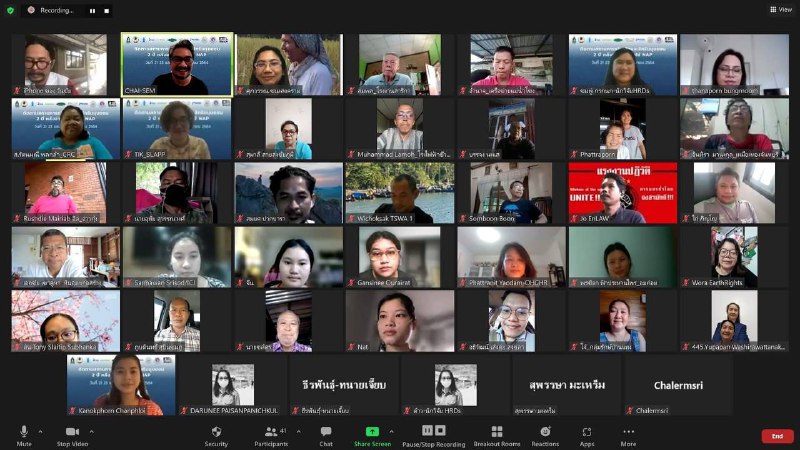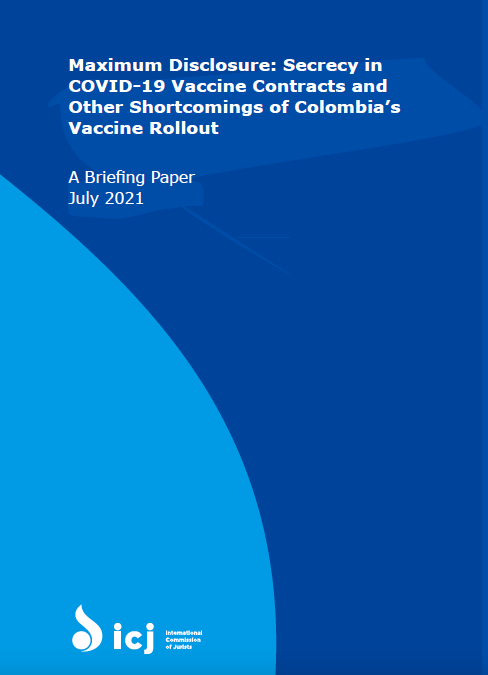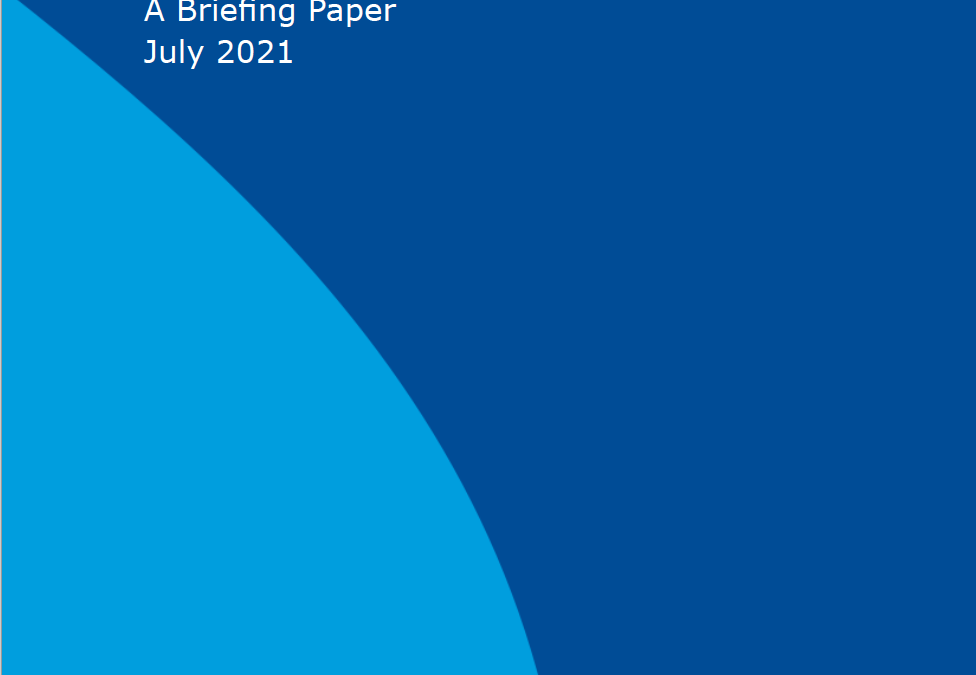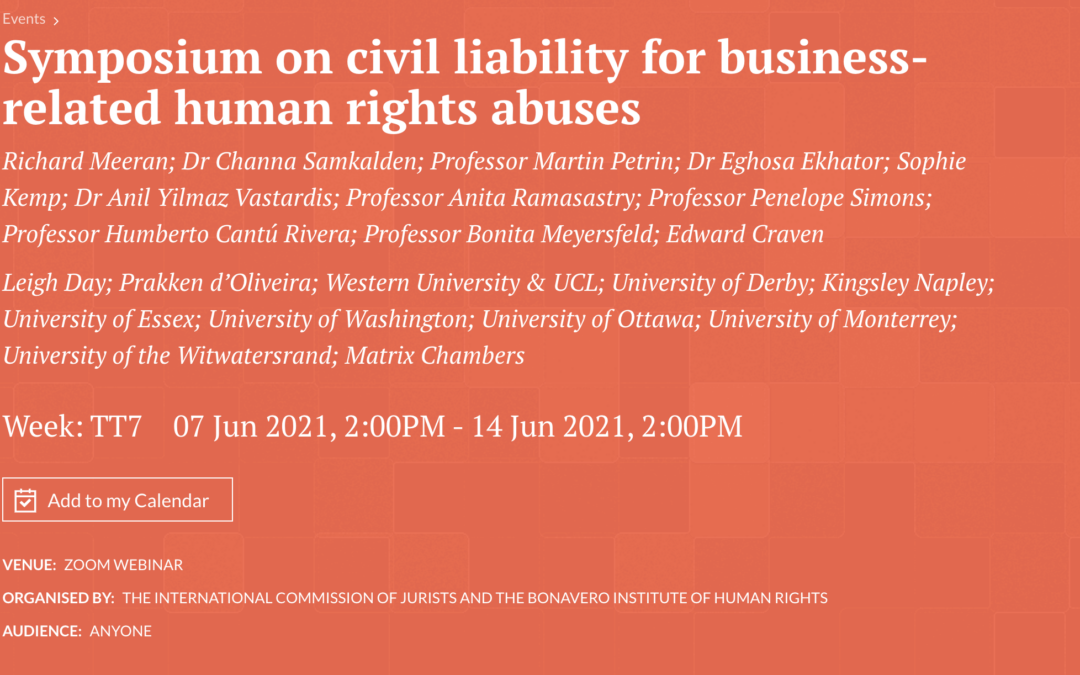
Nov 26, 2021 | Events, News
On 21, 23 and 26 November 2021, the ICJ co-hosted an online discussion on “Thailand’s National Action Plan on Business and Human Rights: 2-Year Progress Review”. The forum was co-organized with other 11 organizations.

Aug 2, 2021
Hoy, la CIJ publica un documento informativo (briefing paper) en inglés sobre el limitado acceso a vacunas contra el COVID-19, por parte de personas que no son ciudadanas colombianas, y sobre el fracaso de las autoridades colombianas en hacer público los contratos sobre vacunas contra el COVID-19 firmados con compañías farmacéuticas. Se trata de dos de los principales desafíos en la protección de los derechos humanos en el plan de adquisición y despliegue de vacunas contra el COVID-19 en el país.

Aug 2, 2021
Today, the ICJ published a briefing paper on non-citizens’ limited vaccine access and the authorities’ failure to disclose Colombia’s COVID-19 contracts with pharmaceutical companies, two of the main human rights challenges inhibiting human rights protection in the country’s vaccine acquisition and rollout plan.

Jul 8, 2021
In a letter dated 8 July 2021, ICJ expressed its concerns that the MTN Group has agreed to implement an unlawful request from the Swazi government to disrupt internet access in eSwatini.

Jun 4, 2021 | Agendas, Events, News
As part of its work to raise awareness and deepen the understanding about the importance of civil liability for the objective of improved accountability of business-related human rights abuses and access to justice and reparations, the ICJ is partnering with the Bonavero Institute of Human Rights to organize an online symposium.
The symposium is open to practitioners, policymakers, civil society, academics, and students working on these subjects. It will feature two panel discussions on Zoom on 7 June 2021 and 14 June 2021.
Past decades saw an emerging trend towards reliance on civil liability claims to address business-related human rights abuses (e.g., Lungowe v Vedanta and Okpabi v Shell in the UK; Choc v Hudbay Minerals and Araya v Nevsun in Canada; Akpan v Shell in the Netherlands; Jabir and others v KiK Textilien in Germany).
The ICJ and the Bonavero Institute of Human Rights’ symposium will discuss the wider implications of recent jurisprudence and identify the remaining gaps in the law.
The discussions will focus on a range of issues, including 1) the contours of rules on the duty of care; 2) prospects for supply chain liability under the law of civil remedies; 3) parent company liability and complicity under civil law; 4) prospects of access to justice.
Please follow the links below to register separately for each panel. The symposium will also involve a series of blogs by experts in the field to be published by Opinio Juris starting 21 June 2021.
Panel 1 ‘Duty of care and parent company liability’
Day and time: 7 June 2021 at 14.00 – 16.00 BST
To register for Panel 1, please click here
Panel 2 ‘Access to justice and civil claims for business-related human rights abuses: Challenges and opportunities’
Day and time: 14 June 2021 at 14.00 – 16.00 BST
To register for Panel 2, please click here
This symposium is co-convened by Dr Carlos Lopez and Dr Ekaterina Aristova. Please get in touch with the organisers if you have any questions. The symposium is part of the project on civil liability for human rights violations led by the Bonavero Institute and funded by the Oak Foundation.









